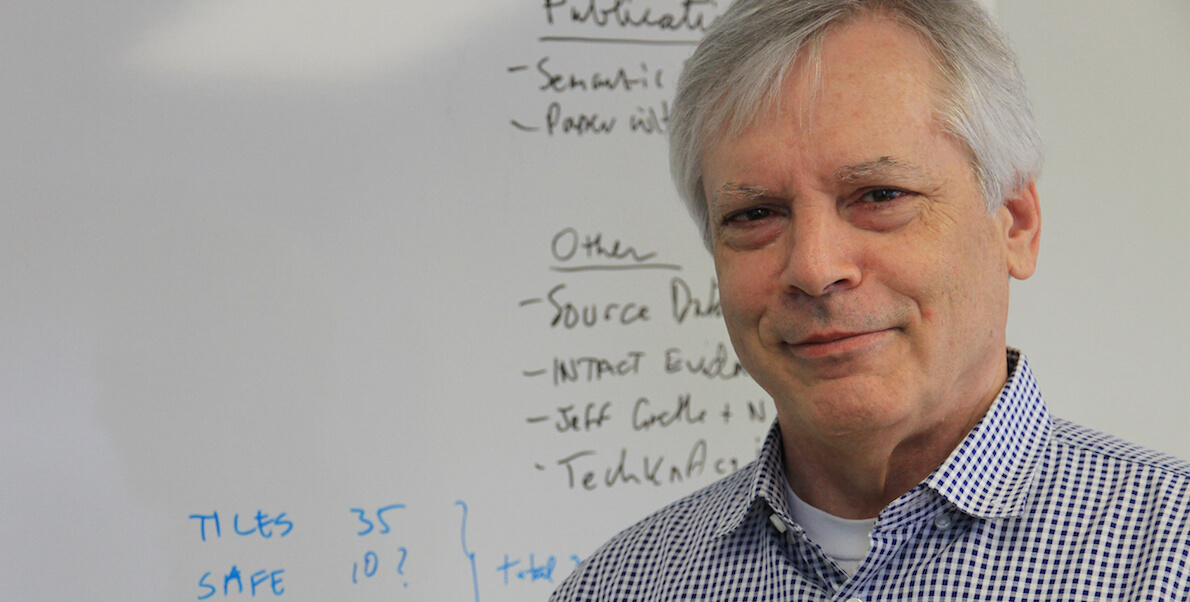
Yigal Arens honored for contributions to digital government /Photo Credit: Caitlin Dawson
The Digital Government Society has recognized Yigal Arens, USC ISI’s Senior Director for Administrative Affairs, for his long and “sustained service and tireless dedication” to digital government. Arens, who in the 1990’s was advancing in information technology in government, helped create a series of conferences and outlined a vision for what would eventually become the Digital Government Society. The organization is dedicated to advocating for the use of information technology to “support government operations and engage citizens.”
Arens’ involvement in digital government started in the area of data and information integration when ISI was developing techniques for creating an integrated, single, uniform view of multiple databases or other sources of data that covered the same area or topic. By the early 2000’s, Arens and his team at ISI were already leaders in this field, applying what they had learned and extending it to several collections of data of interest to the government such as energy data and labor data.
For almost 20 years, Arens has helped expand digital government initiatives around the world, strengthening the digital government research community in the US and establishing relationships between the US and similar research and communities in Canada and Mexico, South America, Europe and Asia.
Arens’ commitment to digital government stems from his belief that digital government plays a critical role in democracy. Arens sees digital government as “a significant enabler of improved citizen participation and government services.”
He knows the good digital government can do from providing services, transparency, equal access to information or thwarting dangerous criminals involved in human trafficking on the web. However, Arens is also aware of the critical balance of ensuring confidentiality, ensuring fairness and reliability of information.
In some cases, he believes there is a lot more to do—that the U.S. has left too much to the private sector. There are certain problems, he says, that only government can fix such as creating and enforcing standards of privacy and security. Regulation, he believes, is key.
Arens admits, governments can go too far. In some parts of the world, someone can be arrested for a Facebook post. “Technology,” he says, “ is just a tool that can be used for good or evil.” Even in less restrictive societies, he says, one of the biggest issues is that we could not foresee the amount of data we would eventually collect on individuals.
“Our laws and customs are going through a difficult adjustment to these new realities. We must continue to update our laws and understanding of people’s privacy and the new realities being created.”
Arens has continued to be active in his leadership within the Digital Government Society, establishing with colleagues a track focused on “smart cities” at the organization’s annual conference. This track focuses on the benefits information technology can bring to urban life, through technical and policy innovations in areas such as transportation, health, education, planning, and privacy. In addition, he will seek to encourage his peers to study and counter the danger posed to democracy by fake news.
Published on September 29th, 2017
Last updated on September 16th, 2020













